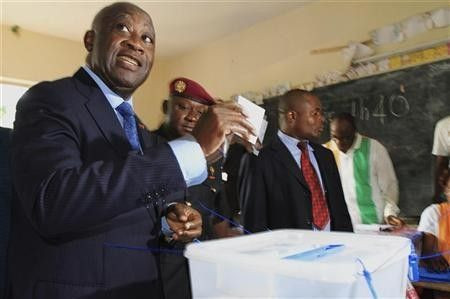Washington hopes AU panel will tell Gbagbo to go

An African Union panel charged with finding a solution to Ivory Coast's leadership crisis should make clear to Laurent Gbagbo that he must step down, the United States said on Thursday.
Opposition candidate Alassane Ouattara beat Gbagbo in a November 28 presidential election, according to U.N.-certified results, but Gbagbo has refused to go, defying international condemnation and Western sanctions.
Our position is that Mr Ouattara won the election and should be the president, U.S. Deputy Secretary of State James Steinberg told reporters in the Kenyan capital Nairobi.
We hope this new mission of AU leaders can make clear to former President Laurent Gbagbo ... that the time has come to go, Steinberg said.
The African Union (AU) agreed on Friday to form a panel of five heads of state to solve the crisis by coming up with a binding settlement within a month. It set up the panel after member states failed to agree on the use of force to oust Gbagbo.
The panel comprises the presidents of Burkina Faso, Chad, Mauritania, South Africa and Tanzania as well as top officials from the AU and West African regional bloc ECOWAS.
Asked whether there should be a power-sharing government, Steinberg said it was up to Ouattara to decide the composition of his government once in office.
The solution is to recognise the results of the election, that is to allow Mr Ouattara to become president and for him to decide what he wants to do in terms of government formation. It is his choice and that should not be negotiated, he said.
Obviously, we would like to see this resolved through diplomacy and dialogue and I hope (Gbagbo) heeds the words of the African leaders that he'll be meeting with and the strong will of the African Union and (ECOWAS) ... to recognise the will of the people, Steinberg said.
The election was supposed to end a stalemate since a 2002-3 rebellion divided the country, but has worsened those divisions. At least 260 have been killed in post-election violence, many of them by pro-Gbagbo security forces, the United Nations says.
© Copyright Thomson Reuters {{Year}}. All rights reserved.





















